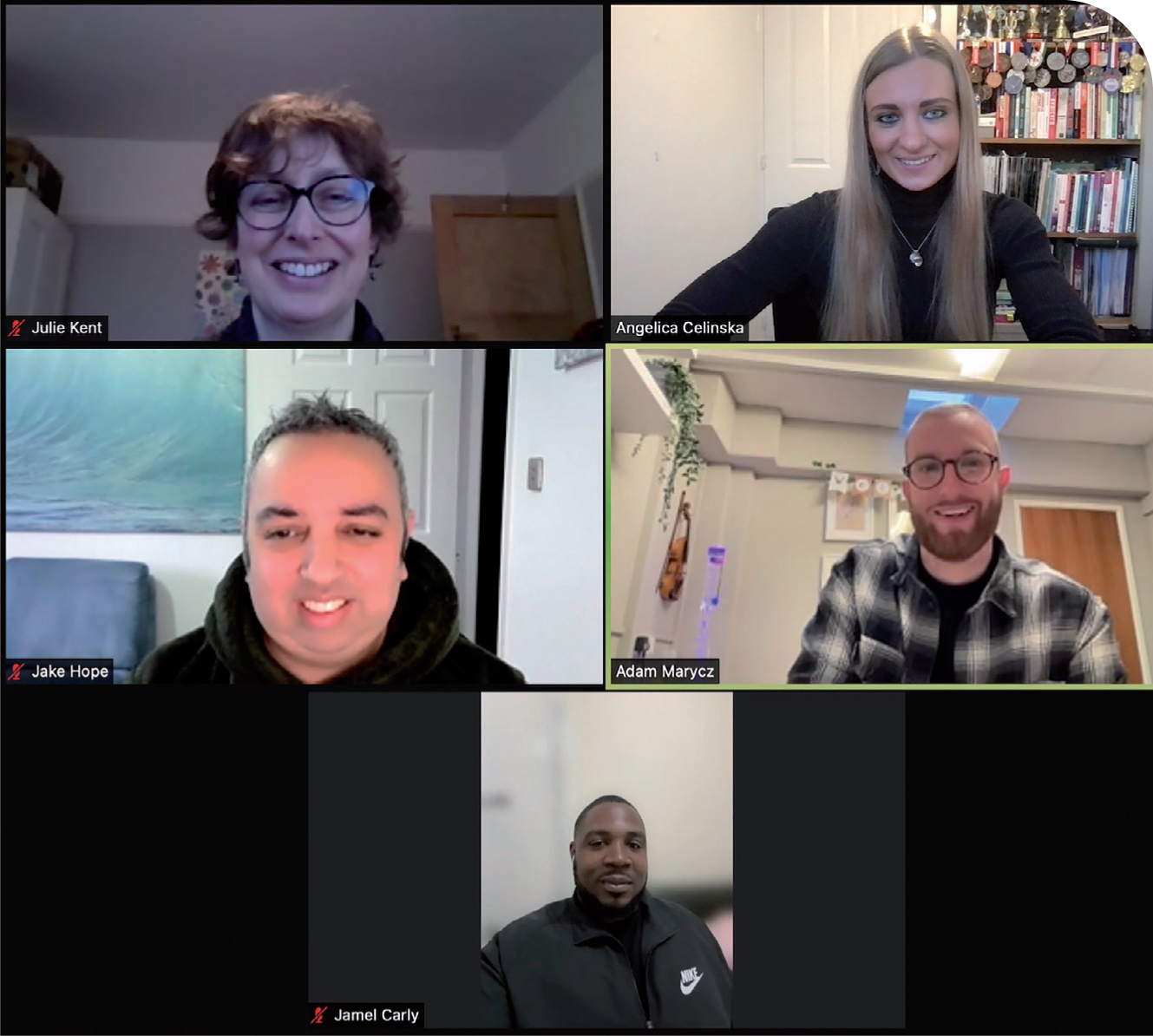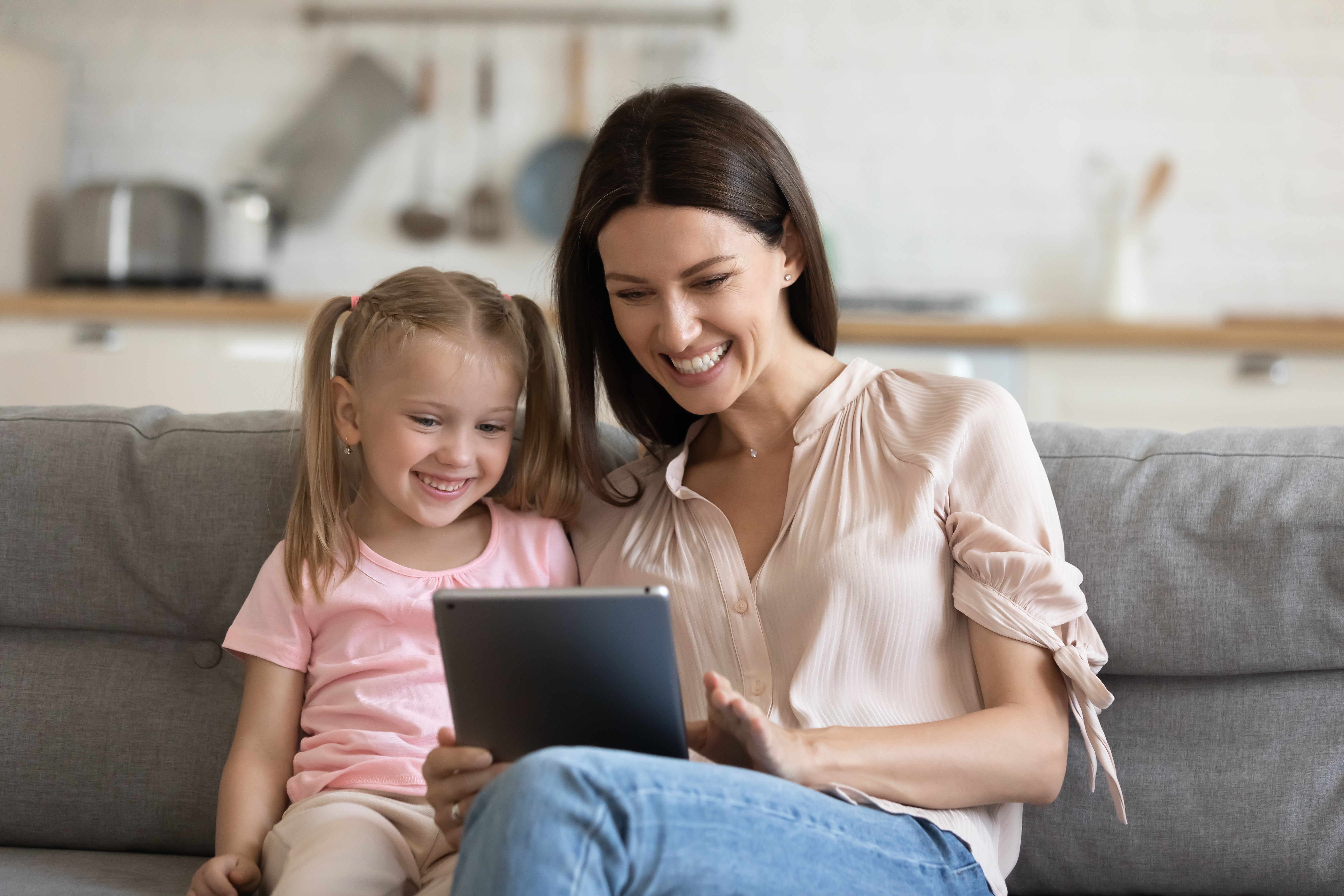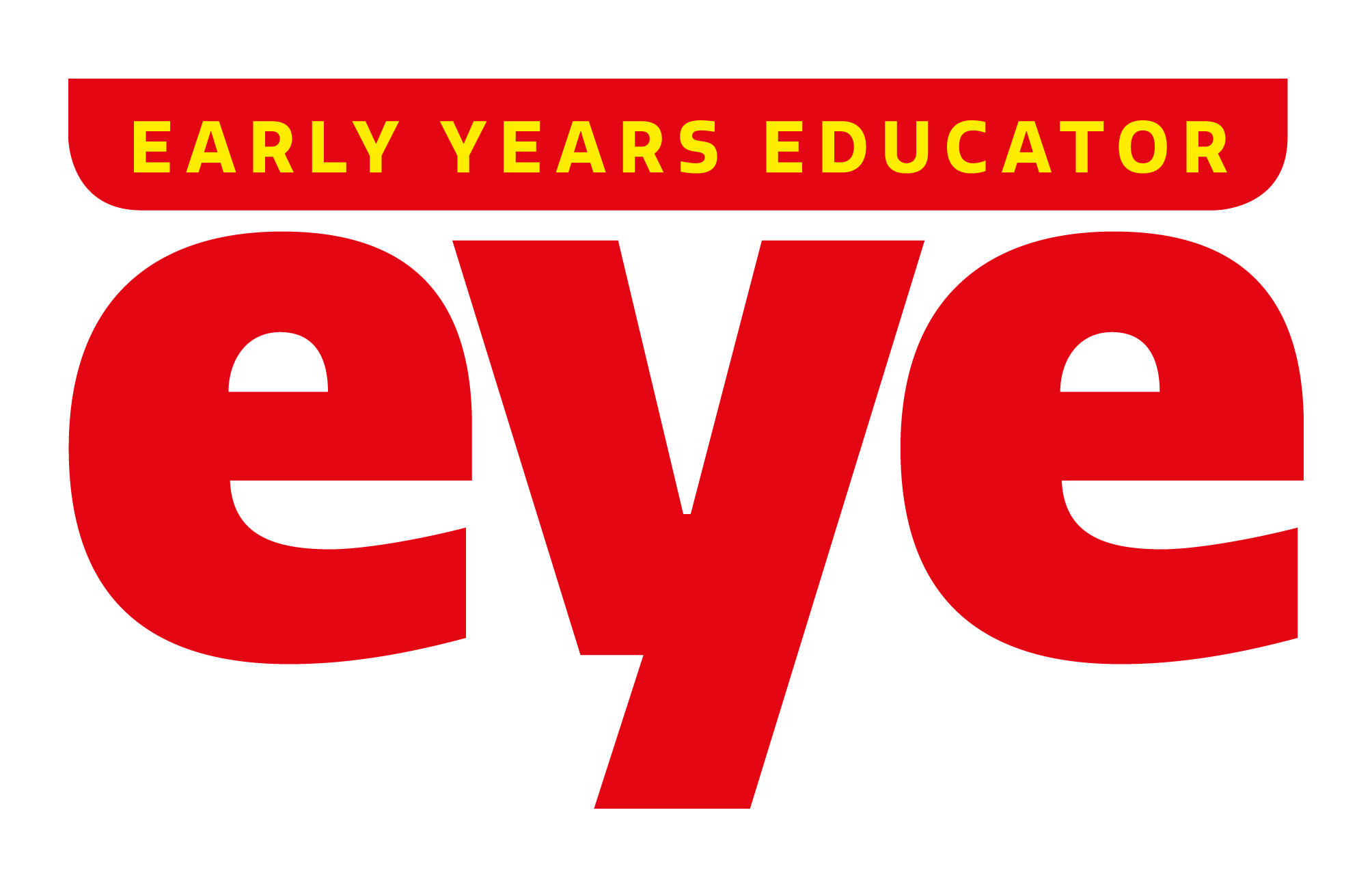
Adam Marycz
Early years teacher, manager, writer, podcast host, @adameyleader on social media
The Expert Panel Debate involved
Jake Hope; children's book and reading development consultant, Polylino UK literature expert, Adam Marycz; early years teacher, manager and writer, Jamel Carly Campbell; early years educator, consultant, author and mentor, Julie Kent; senior lecturer and researcher in Childhood with a professional background as a speech and language therapist.

How is technology used in settings right now?
In Adam's setting the children are aged from two to five, they have access to tablets with ‘both verbal and visual instructions’ and ‘the ability… to play the sounds, the stories, the music… through speakers.’ Jamel has also used ‘tablets… for research, YouTube with guidance and support to play different videos.’ Jamel then went further by reflecting on the changes he has witnessed in the use of technology, from ‘programmable bugs, interactive stories and interactive story pens’, ‘recording tablets… if you had children that were bilingual’ to the use of technology with children with SEND, this included tablets with buttons for children with ‘speech delay’ which supported the children to communicate their wants and needs such as at ‘snack time’. ‘Technology can be a real assistance’ for ‘children who have got speech and language and communication needs’ according to research Julie has been reviewing, particularly e-books. A benefit Polylino has to offer is the opportunity to hear audio narration ‘in different languages which… makes it highly accessible’ says Jake.
‘One of the pieces of research…shows that children interact longer with a book when it's in an e-book format, and also there's increased level of independence’ Julie said, however she also acknowledged ‘there's always the counter research’ such as how that independence may restrict a child ‘developing communication with another person or maybe with a peer or a more knowledgeable other’ and not encourage that ‘sustained shared conversation.’ ‘It is a real mixed bag in terms of discussion that's out there.’ Julie goes on to signpost colleagues to ‘The Hanen Centre’ website where they've ‘collated some of the research’ and ‘presented it’ showing the pros and cons.
The love of books
‘When you are thinking about books, it's such an emotive subject’, ‘the way we love the book and we want to hold a book and share a book with a child’ Julie said. This was echoed by Adam when he said he has an ‘obsession with children's books’ and Jamel who says I ‘love literacy in general’ ‘I've got thousands of books.’ Interestingly Jake cites a piece ‘of research around e-books… that you actually don't have the same type of bonding experience, the kind of attachment that you often find in one-to-one story telling’ instead he argues ‘it's all about balance’ as with technology ‘we are talking about a format change rather than something that's completely different.’ Julie also considers how ‘in terms of joint reading strategies that parents or practitioners use with children when they are looking at a real book, they don't necessarily support children with the reading strategies in the same way that they would do with an actual hard copy book.’
‘Digital picture books with babies?’
‘With babies… Jake mentioned this too, the bonding experience that's there in sharing a book… might not be the same’ and ‘that sustained back and forth interaction that you might have and then them maybe pointing or making a sound and you copying it, I don't know how well that might translate into the digital word’ Julie argued.
Accessibility for all
Julie does however think digital technology may increase children's accessibility to books, ‘if you think about the way that libraries are closing, and actually how costly books are’ then as ‘most families will have a phone’ then ‘there's an accessibility element there that digital technology may open up.’ Jake agrees with Julie, ‘this is one of the big, big positives of what technology can do because traditionally it has been incredibly expensive to be able to produce accessible versions of printed texts’ so ‘we've gone from being able to have around about three percent of titles in accessible formats to theoretically almost everything being able to be done, and again Julie was talking about the smartphones and access to those, its round about 82 to 89 percent of people in the UK that have a smartphone.’ Meanwhile Adam considers accessibility through the settings’ lens when he says we ‘find amazing stories we would like to share with all parents’ but ‘the cost’ to ‘send that home for a learning opportunity for all of your children is really really expensive’ ‘especially when settings and families are struggling from a funding and financial point of view’ so ‘the ability’ to access it ‘on a digital platform that you can send out’ instead is interesting.
Jamel also reflected on accessibility from the settings point of view when detailing how lockdown forced settings to make decisions on how to ‘deliver story times, circle times’ in ‘the same way we did when the children were present.’ ‘I still had to adapt to this new way of doing things, telling ‘The three little pigs' through PowerPoint’ ‘telling parents where they can find grass and sticks… or a brick and bring it into their homes and tell the story and let the children feel and touch’ so stories can be as ‘tangible and as authentic’ as possible. ‘Jamel is absolutely right’ says Jake, ‘adapting your techniques to take advantage of the opportunities that technology provides is really important.’
Julie also thinks ‘there's so much potential for things to be developed to support children who have other sensory needs’ for example needs that ‘make it difficult for them to access things auditory or visually.’
It's all about the delivery
Julie says ‘it's not what you do but it's the way that you do it’ ‘anyone can sit there with a book and hold it up to the children and turn the page’ and ‘it's just not engaging at all.’ This is supported by Jamel who also said ‘we can tell a story from a book, read a book and it can be bland and children don't connect with it.’

Technology as an ‘additional teacher’?
Could technology be used, not to replace a practitioner but instead become an additional practitioner? ‘You can leave a child with any activity but what makes that activity resourceful and learning enriched is the practitioner’ suggests Jamel. He goes on, ‘support (is) given, open-ended questions are asked… we introduce new words’ ‘we introduce…different types of language.’ ‘I think what technology lacks… it cannot guide the children.’ Adam also supports this idea, ‘it has a place (but) it is not a replacement’, ‘there will be some language benefit to a child having a story read to them via a tablet’, ‘but it can't extend the learning in the same way we can’ but we should be conscious of the ‘balance’ and ensuring ‘we don't… rely on technology.’
‘Traditional methodologies vs modern technology’
Jamel considers the role our culture plays in the way we tell stories, ‘coming from the Caribbean, Trinidad and Tobago and Jamaica, when it comes to storytelling… is done the traditional way, through word of mouth’, ‘stories of the land, stories of the culture’, and ‘I think in England… it's kind of similar’, you've ‘always been known for… huge libraries.’ He argues that these traditions are the biggest reason there may be ‘resistance to move into’ the area of digital e-books that Jake discusses when he details the success the parent company of Polylino, ILT Education have already experienced in Sweden, Finland and Germany. Jake also reminds the panel that ‘we've been very slow to adapt to literacy in technology (in the UK)’ and that this idea is still very new.

Children's voice in stories
Both Julie and Jamel point to the importance of children being given the opportunity to tell their own stories, Julie says, ‘it would be a shame to lose that sense of the child… making up their own stories’, whilst Jamel agrees that it's ‘so important… children are able to use their imagination to create and be creative.’ Jake also agrees with this idea and describes how Polylino has responded to this by having ‘wordless picture books… silent stories so children can create their own narratives based around the visuals that they are seeing.’

Polylino
Polylino is a digital picture book service with hundreds of high-quality EYFS aligned books. The user-friendly digital solution aims to support all children at storytime, including EAL, SEND and disadvantaged students, as all the books can be listened to in English and many can also be listened to in over 50 other languages.
Polylino's UK children's literature expert Jake Hope not only selects the books to ensure all areas of the EYFS curriculum are covered, but has also written the teacher guide to accompany the service. Polylino can be accessed using a desktop, tablet or a smartphone, so it can be a perfect companion to use alongside traditional books during storytime. A nursery school can also allow parents/guardians to use Polylino with their children to give them access to more books at home.
Polylino is new in the UK but it is a market-leading, tried and tested service which is loved by early years practitioners across the Nordic market and beyond. Visit http://www.polylino.co.uk for a free trial to try it out yourself at your nursery school or group, or book a 1:1 demo via info@ilteducation.co.uk.
Take a look at the full Expert Panel Debate recording here:



Polylino are offering free access to their multilingual digital picture book service for Ukrainian refugees in the UK, see full details here:
First published on Early Years Educator 14/03/2022









